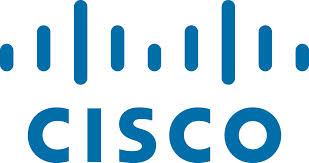Tuesday, July 22, 2008
Wireless Spectrum Auction Completed � Status Quo or Real Competition?
Canada�s AWS auction finally finished yesterday, and there should be no doubt about the perceived value of wireless spectrum. The final take was $4.25 billion � that�s a lot of free money for the federal government, and that raises an issue unto itself. How those proceeds are spent � or invested � will say a lot about what kind of a country Canada wants to be.
To me, it�s a philosophical issue as much as economic � these windfalls don�t come along often. It�s like getting a one-off giant tax refund that sets your head spinning about what to do with it. Pay off the credit card, take a family vacation, pay down the mortgage, fix up the house, top up the college fund? It�s not enough to retire on, but enough to make a significant dent in any of these noble causes. Any of these will improve your quality of life, so it�s a matter of figuring out what�s the highest priority.
It�s no different for the proceeds from this auction. If Canada wants to do the practical thing that no voter would oppose, they�ll just pay down the federal debt. If there�s some vision behind this, they�ll see this as an infrastructure issue to help Canada become more competitive and connected in the information economy. Of course, that�s what the auction is all about, as the winners will now get busy spending even more money building new networks or expanding/upgrading the ones they have already.
Fair enough, but what about people in remote or poor communities who cannot afford wireless and/or Internet services? This may not be a core issues for voters, but it sure represents a prime opportunity to take some leadership in terms of having some form of a national broadband policy. Countries like Korea and Sweden have gone down that road and the benefits are as clear as day. This is a rich topic that warrants more focus, and for that, I�m going to steer you to fellow local blogger Mark Goldberg, who is well versed, vocal and worth following. Mark also had a very insightful post this morning that puts a lot of this in perspective. Spend some time there - he'll be glad you did!
Back to the auction results. I posted about this recently and am not going to get into a long discussion � just wanted to touch on a few things that stood out.
- Not surprisingly, the incumbents � Bell, Rogers and Telus � did about 2/3 of the spending. This is pretty much in line with the amount of spectrum that was available for them to bid on. In the spirit of defending their turf, that�s to be expected, and validates how important any form of wireless spectrum is to them once it�s up for grabs.
- Globalive and Videotron were the next biggest spenders, but these two are on very different paths. Globalive has national ambitions, and I see them emerging as the fourth Canada-wide competitor � which is about all I think Canada can really support long-term. They have coverage pretty much everywhere but Quebec, and to address that, they�ll likely have to make a deal with Videotron, who is solely focused on Quebec. That will be an interesting scenario to watch.
- Notably absent was MTS/Allstream and the U.S. operators. MTS has had opportunities to become a national wireless player before, and however you want to spin that, it just doesn�t seem to be in the cards for them. I don't see this as a plus for their future.
More importantly � and to the question posed in the title of this post � what�s the score? Will this really give Canadians more choice, better services and lower prices? I think the status quo has largely been maintained, and that will hold if the new players � whether national or regional � simply play to the mass market and just focus on price or tweaking the everyday services � you know, voice 1.0. I could be glib and say that�s the Canadian way, but I�ve got to look for the silver lining here. As I�ve said before, there�s a great opportunity for new players to be disruptive and come to market straight out of the gate with voice 2.0 services.
Even better if it�s telco 2.0 or wireless 2.0 or web 2.0 or communications 2.0 � you get the idea. How about 3.0 � whatever that means? The main idea here is that they�re starting with a clean slate and can build the kind of networks to support market needs for the next 10 years. In my view, the incumbents are more motivated to acquire spectrum for defensive reasons. I think they will be as innovative as they need to be to keep this a 3 horse race - and no more than that.
Globalive can certainly make it a 4 horse race if they really take it to them, and that would help make this a more interesting market. Same goes for the regional players, especially Videotron. They have been very successful with VoIP in Quebec because they were disruptive, not just on price, but with faster speeds and creative bundling packages. I fully expect more of the same with them for wireless, so this will be another market to follow closely.
So, is it a brand new day for wireless in Canada? It�s too early to tell, but if it�s the same-old with both the operators and the federal government � we�ll just be getting Canada 1.0, and that�s a step backwards, not forward. Let�s hope not, and as subscribers, we have to vote with our wallets.
Consumer activism paid off around the recent iPhone launch here, and that�s a sign of hope that we have a say in this too. And believe me, the last thing the government wants to see after going through this exercise is the status quo. They�ll have a lot of �splainin� to do if that�s the end result, so their job is far from done.
While I'm not wanting to end on a down note, I can't help but ask the bigger question that's driving all this spending in the first place. If you build it, will they come? What if... what if the market actually is in equilibrium right now? The gold rush mentality today is based on the premise that wireless adoption lags other modern economies, so there's lots of upside to go yet.
Hmm. I'm not so sure. Adoption is lower here, no doubt - largely because prices are high, and the value just isn't there for everyone else. Sure, there are pockets where wireless service isn't available or good enough. By and large, however, I would argue that anyone who wants a cell phone these days in Canada has got one by now. Basic economics would dictate that if prices fall, demand will rise - so sure, new entrants will be fighting for the scraps, and they'll have to do it on price.
How on earth are these guys going to turn a profit after spending so much money to get into the game? I just don't get that. What if the mass market doesn't want 2.0 services? Then they all become Vonages, and the incumbents will cut prices until they all go away and we're back to square one again. Ugh. Let's hope not. All I can say is the faster the new players can bring 2.0 to the market, the better - it's our only hope for true competition.
Technorati tags: Jon Arnold, AWS auction, Canadian wireless, Mark Goldberg
To me, it�s a philosophical issue as much as economic � these windfalls don�t come along often. It�s like getting a one-off giant tax refund that sets your head spinning about what to do with it. Pay off the credit card, take a family vacation, pay down the mortgage, fix up the house, top up the college fund? It�s not enough to retire on, but enough to make a significant dent in any of these noble causes. Any of these will improve your quality of life, so it�s a matter of figuring out what�s the highest priority.
It�s no different for the proceeds from this auction. If Canada wants to do the practical thing that no voter would oppose, they�ll just pay down the federal debt. If there�s some vision behind this, they�ll see this as an infrastructure issue to help Canada become more competitive and connected in the information economy. Of course, that�s what the auction is all about, as the winners will now get busy spending even more money building new networks or expanding/upgrading the ones they have already.
Fair enough, but what about people in remote or poor communities who cannot afford wireless and/or Internet services? This may not be a core issues for voters, but it sure represents a prime opportunity to take some leadership in terms of having some form of a national broadband policy. Countries like Korea and Sweden have gone down that road and the benefits are as clear as day. This is a rich topic that warrants more focus, and for that, I�m going to steer you to fellow local blogger Mark Goldberg, who is well versed, vocal and worth following. Mark also had a very insightful post this morning that puts a lot of this in perspective. Spend some time there - he'll be glad you did!
Back to the auction results. I posted about this recently and am not going to get into a long discussion � just wanted to touch on a few things that stood out.
- Not surprisingly, the incumbents � Bell, Rogers and Telus � did about 2/3 of the spending. This is pretty much in line with the amount of spectrum that was available for them to bid on. In the spirit of defending their turf, that�s to be expected, and validates how important any form of wireless spectrum is to them once it�s up for grabs.
- Globalive and Videotron were the next biggest spenders, but these two are on very different paths. Globalive has national ambitions, and I see them emerging as the fourth Canada-wide competitor � which is about all I think Canada can really support long-term. They have coverage pretty much everywhere but Quebec, and to address that, they�ll likely have to make a deal with Videotron, who is solely focused on Quebec. That will be an interesting scenario to watch.
- Notably absent was MTS/Allstream and the U.S. operators. MTS has had opportunities to become a national wireless player before, and however you want to spin that, it just doesn�t seem to be in the cards for them. I don't see this as a plus for their future.
More importantly � and to the question posed in the title of this post � what�s the score? Will this really give Canadians more choice, better services and lower prices? I think the status quo has largely been maintained, and that will hold if the new players � whether national or regional � simply play to the mass market and just focus on price or tweaking the everyday services � you know, voice 1.0. I could be glib and say that�s the Canadian way, but I�ve got to look for the silver lining here. As I�ve said before, there�s a great opportunity for new players to be disruptive and come to market straight out of the gate with voice 2.0 services.
Even better if it�s telco 2.0 or wireless 2.0 or web 2.0 or communications 2.0 � you get the idea. How about 3.0 � whatever that means? The main idea here is that they�re starting with a clean slate and can build the kind of networks to support market needs for the next 10 years. In my view, the incumbents are more motivated to acquire spectrum for defensive reasons. I think they will be as innovative as they need to be to keep this a 3 horse race - and no more than that.
Globalive can certainly make it a 4 horse race if they really take it to them, and that would help make this a more interesting market. Same goes for the regional players, especially Videotron. They have been very successful with VoIP in Quebec because they were disruptive, not just on price, but with faster speeds and creative bundling packages. I fully expect more of the same with them for wireless, so this will be another market to follow closely.
So, is it a brand new day for wireless in Canada? It�s too early to tell, but if it�s the same-old with both the operators and the federal government � we�ll just be getting Canada 1.0, and that�s a step backwards, not forward. Let�s hope not, and as subscribers, we have to vote with our wallets.
Consumer activism paid off around the recent iPhone launch here, and that�s a sign of hope that we have a say in this too. And believe me, the last thing the government wants to see after going through this exercise is the status quo. They�ll have a lot of �splainin� to do if that�s the end result, so their job is far from done.
While I'm not wanting to end on a down note, I can't help but ask the bigger question that's driving all this spending in the first place. If you build it, will they come? What if... what if the market actually is in equilibrium right now? The gold rush mentality today is based on the premise that wireless adoption lags other modern economies, so there's lots of upside to go yet.
Hmm. I'm not so sure. Adoption is lower here, no doubt - largely because prices are high, and the value just isn't there for everyone else. Sure, there are pockets where wireless service isn't available or good enough. By and large, however, I would argue that anyone who wants a cell phone these days in Canada has got one by now. Basic economics would dictate that if prices fall, demand will rise - so sure, new entrants will be fighting for the scraps, and they'll have to do it on price.
How on earth are these guys going to turn a profit after spending so much money to get into the game? I just don't get that. What if the mass market doesn't want 2.0 services? Then they all become Vonages, and the incumbents will cut prices until they all go away and we're back to square one again. Ugh. Let's hope not. All I can say is the faster the new players can bring 2.0 to the market, the better - it's our only hope for true competition.
Technorati tags: Jon Arnold, AWS auction, Canadian wireless, Mark Goldberg
Subscribe to:
Post Comments (Atom)











No comments:
Post a Comment